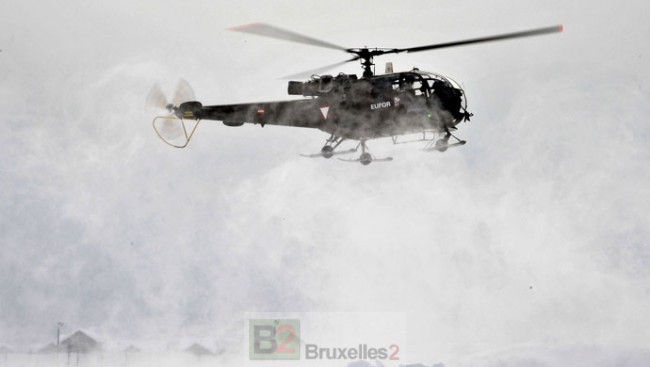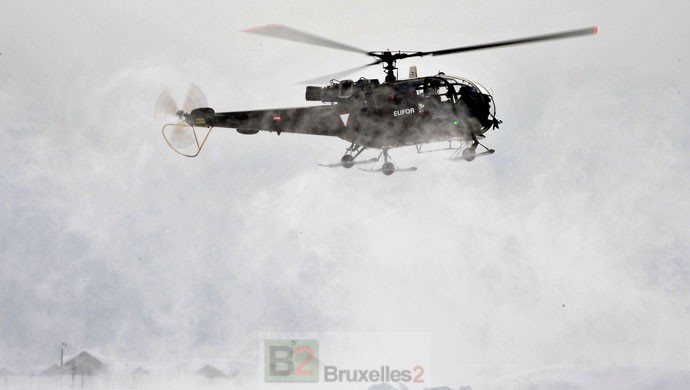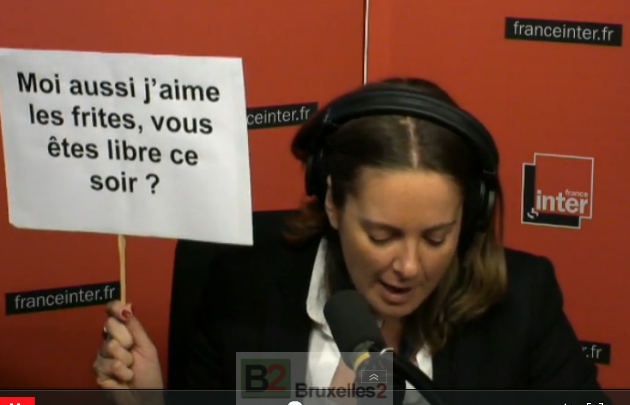What can Europeans do to support France? Commit a little more?

(BRUSSELS2) After the three attacks in Paris, on 7, 8 and 9 January (*), the European reaction was strong in emotions and symbols. But weak, for the moment, in concrete actions. The legislative arsenal should be strengthened in the future (European PNR, etc.). But that will take time. And that will not be enough. It will be necessary to go further in solidarity and European action, in particular by taking over from France in certain theaters of operation.
France... at the end of its abilities
Very quickly, the question of supporting France in certain military actions will arise. The mobilization of 10.000 additional soldiers on French territory (read: Army deployed in France. An “inner operation” of protection) does not seem episodic and should last several months, even several years. To this must be added around 20.000 soldiers outside mainland France (multinational or national external operations, permanent bases, overseas). That is 30.000 people mobilized. The French army is today thus at the limit of its operational capacities. This, against a background of threats that are still very present, whether in the north of the Sahel, on the Libyan side or in the south, on the Nigeria or Cameroon side (read: 2014, a year of crises… And it's not over in 2015!). This should challenge European states.
Shift up a gear
So far, the Europeans have supported France in the Sahel in a rather limited way. The Germans are currently engaged in a fairly massive way in the training mission of the Malian army (EUTM Mali). And some air support exists, at least at the level of strategic transport (Europe-Sahel), with the European grouping EATC. But the question of moving up a gear will now arise. A question as much political as financial or military.
Ensure the relay in multinational operations
The Europeans will have to take over from France in certain multinational stabilization operations. The French presence in certain European missions or operations has, in fact, already greatly diminished (EUMM Georgia, EUNAVFOR Atalanta). France had withdrawn its gendarmes from EULEX Kosovo and, more formerly, from EUFOR Althea in Bosnia and Herzegovina, the French presence decreased in the observation mission in Georgia (EUMM Georgia) and became less strong in the combat operation against piracy in Somalia (EUNAVFOR Atalanta). The European stabilization operation in the Central African Republic (EUFOR RCA) ends next March. And the baton has generally been passed in the training mission of the Malian army to the Germans and Spaniards in large part. This movement could continue.
Someone to take the initiative
But, above all, in the future, we must not rely too much on France, to take on the role of "framework nation", or even participate in PeSDC missions, except in the overriding national interest. Not for lack of will. But for lack of means. Any new European operation or mission, whether carried out under the CFSP, the common European security and defense policy, or NATO, the Atlantic alliance, will therefore have to be carried out without major French participation. This is something that the Europeans and Allies will have to take into account... A country will have to take over the initiative. All eyes then turned to Berlin (Rome and Madrid struggling with economic difficulties). Germany thus finds itself with a new, uncomfortable role to take on: that of leader of European security policy.
Four urgent challenges
Concretely, four urgent challenges present themselves to Europeans which require a rapid response.
Firstly, it is a question of ensuring the rapid rise in power of the UN mission in the Central African Republic (MINUSCA), thus enabling the French to Sangaris to withdraw as quickly as possible.
Secondly, it is necessary to examine which European countries can bring to the operation Barkhane, led by France in the Sahel countries, more intense support. Various European planes are already mobilized, quite discreetly, through the European transport aviation group EATC, to ensure strategic transport (Europe-Sahel). But that's about all. It's about doing more, at least logistically — medical support, fuel, drones, and so on. — in order to better share the effort in terms of men, resources and... finances. A question that is all the more crucial since Paris has decided to strengthen its resources in the area.
The third challenge is to strengthen the action taken in Iraq, in the international coalition led by the Americans.
Finally, and more difficult, we must think seriously about the possible action vis-à-vis the inner conflict Libyan, on the one hand to prevent it from degenerating into a zone of lawlessness, totally uncontrollable, on the other hand, to "eradicate" the possible hotbeds of terrorism which are there in order to avoid an overflow to the north towards Europe, to the west towards Tunisia, to the south towards the Sahel and Chad. Same reflection to have on the area Nigeria-Cameroon, where we can now speak clearly of a "conflict" or "war" led by Boko Haram against the states of the region, after the successive attacks against several villages in northern Nigeria and on the Kolofata base in northern Cameroon, early January.
Repositioning European priorities
More crucially than ever, the question of the repositioning of certain missions and stabilization operations currently carried out by the Europeans arises. Some have a very limited interest in strategic and practical terms. Others are downright financial or human mismanagement.
The stabilization operation EUFOR Althea en Bosnia and Herzegovina has more than limited use in military terms but continues to employ several hundred men, whose greatest action in four years has been to provide helicopters during the floods that hit the region (a discussion that dates back to 2009, read: the withdrawal of prepares). A bit expensive and a bit disproportionate for a simple civil protection operation.
In other words, the major NATO operation in Kosovo (KFOR) must return to a more limited low water level. The risk of instability in Kosovo is no longer quite the same as 15 years ago! Its European counterpart, set up to consolidate the rule of law (EULEX Kosovo), is already operating a decline in its workforce. And the continuation of this mission lends itself today to a reflection which should start this year.
It will also be necessary to question the effectiveness of certain missions, such as EUPOL Afghanistan, which has a very limited use, and do not hesitate to close or suspend certain missions. The mission EUBAM Libya, currently at "neutral" - with staff folded in Tunis or even "teleworking"!!! - still consumes a budget of around ten million euros per year. For nothing !
(Nicolas Gros-Verheyde)


